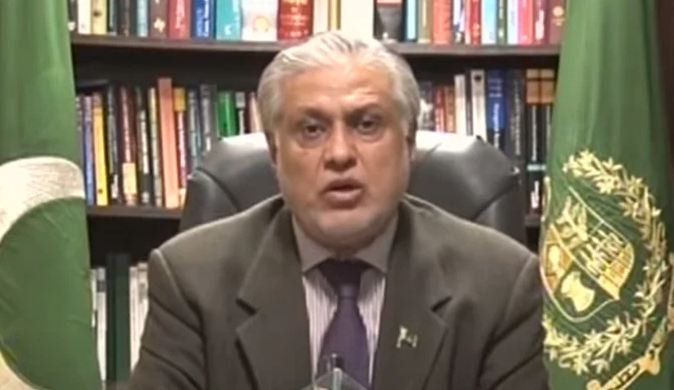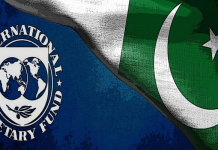ISLAMABAD, JUL 12: Finance Minister Ishaq Dar has said that Pakistan received $1 billion from the United Arab Emirates (UAE) as part of its financial commitment to help Pakistan secure the International Monetary Fund (IMF) bailout package.
“We have received $1 billion from the UAE. The UAE has deposited the amount into the State Bank account,” the financial czar announced in a televised media address on Wednesday.
The development comes as IMF is all set to hold the Executive Board’s key vote on Pakistan’s $3 billion bailout programme today, a person familiar with the matter told Bloomberg.
Islamabad signed a short-term IMF deal on June 30 under which the country will receive $3 billion over nine months, subject to approval by the IMF’s board.
Later in a tweet, Dar said the inflow from the UAE has further increased the country’s foreign exchange reserves held by the SBP “and will accordingly be reflected in the forex reserves position for the week ending 14 July 2023”.
On behalf of PM Shehbaz Sharif, Army Chief General Asim Munir and the people of Pakistan, the federal minister extended “heartfelt thanks to the leadership of United Arab Emirates for their great gesture and support by placing said deposit of $1 billion with State Bank of Pakistan!”
Prime Minister Shehbaz Sharif also expressed gratitude saying: “Grateful to my dear brother, H.H. Mohamed Bin Zayed, President of the UAE, for the deposit of $1 billion with the State Bank of Pakistan. As a time-tested friend & brotherly country, the UAE has always come forward to support Pakistan.”
The prime minister said Pakistan “deeply acknowledge this kind gesture & consider it critical to our efforts to stabilize the economy”.
A day earlier, Dar said Saudi Arabia deposited $2 billion in the SBP account to help the boost the country foreign reserves and fulfill the global lender’s condition to bridge external financing gap.
“SBP has received a deposit of $2 billion from the Kingdom of Saudi Arabia,” Dar had said during a press conference, adding that this inflow has increased the forex reserves held by the central bank and will accordingly be reflected in the forex reserves for the week ending July 14.
Multilateral and bilateral funds were a major obstacle in the way of Pakistan’s deal with the IMF — which remained stalled for more than nine months and expired.
The SBA has now provided the economy with a breathing space, helping the country to avoid a sovereign default, and streamline fiscal policies.
With sky-high inflation and foreign exchange reserves barely enough for a month of controlled imports, analysts say Pakistan’s economic crisis could have spiralled into a debt default in the absence of the IMF bailout.
After the IMF deal, Fitch credit rating agency Monday — after almost a year — upgraded Pakistan’s long-term foreign currency issuer default rating to CCC from CCC-.
Fitch said in a statement the upgrade reflected the country’s improved external liquidity and funding conditions following a SLA with the IMF, but warned that the fiscal deficit still remained wide.
With the IMF deal in place, Pakistan can now unlock other external financing.
In the plan sent to the lender, sources in the Finance Division said that Pakistan arranged $3.5 billion in bilateral funds from China, $2 billion from Saudi Arabia, and $1 from the United Arab Emirates.
On the multilateral side, Pakistan aims to secure $500 million from Asian Development Bank, $500 million from World Bank, and $3 billion from the IMF.
Fitch said local authorities expect $25 billion in gross new external financing in FY24, against $15 billion in public debt maturities, including $1 billion in bonds and $3.6 billion to multilateral creditors.
In a bid to ensure that the programme’s measures are implemented in the lead-up to the elections due in October, the lender’s team met all mainstream political parties including Imran Khan-led Pakistan tehreek-e-Insaf (PTI) to seek support and consensus for the SBA.

















